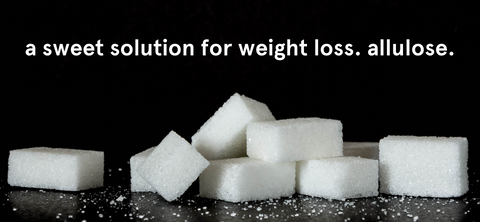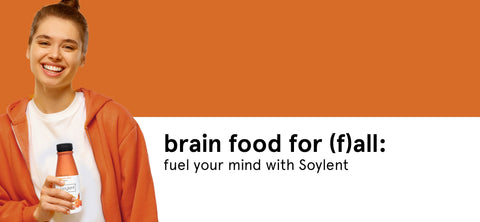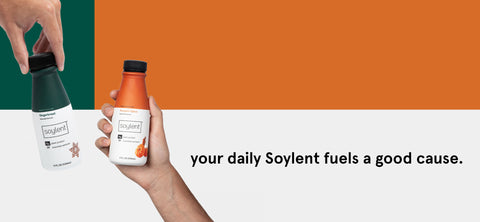
Whether you’re looking to get lean, live sustainably, eat less meat– or if you just saw a documentary that made you rethink everything you’ve ever eaten– a plant-based diet can do your body some good.
Switching your diet can do more than just help you fit into a pair of jeans. It can create a real impact on your health and the health of the planet. Just like any diet, there are complexities in creating the best fuel for your body.
While a plant-based diet sounds pretty simple, nothing is ever really that easy.
That’s why we’re crafting this guide, so you know exactly what you need. Plus, we’re some of the biggest supporters of using plant foods as fuel, and we think you should be, too.
So, what exactly is a plant-based diet?
A plant-based diet is exactly what you are thinking.
A plant-based diet consists of ingredients that come from the ground—not animals. Cows, chickens, pigs—they’re not a part of this diet. But it’s not just fruits and vegetables. A plant-based diet can consist of nuts, seeds, oils, whole grains, legumes, and beans, too.
There are endless ingredients that can be included in a plant-based diet because it’s truly anything that comes from the ground — everything from your standard potatoes to spikey (and stinky) durian.
Typically, a plant-based diet eliminates all animal products, including meat, poultry, fish, eggs, dairy, and in some cases, honey, too. But, there are different levels of plant-based diets that are designed to suit different lifestyles and dietary needs better.
• Plant forward - this diet emphasizes a plant-first approach but is not only limited to plants.
• Vegan - a vegan diet is entirely plant-based, excluding all foods and ingredients that come from animals.
• Vegetarian - a vegetarian diet is also plant-based but can include some dairy products like fish and eggs.
• Flexitarian - a flexitarian diet is flexible on their eating, therefore letting occasional consumption of dairy and animal products, but leading with plants first.

We know what these diets are, but there are so many things they aren’t. It’s not just piling a bunch of leaves on a plate and calling it dinner. These diets rely on using plants for their nutrient value while making them delicious, too.
Is a Plant-Based Diet Healthy?
Just because you are eating a plant-based diet does not automatically make it healthy or even nutritionally complete. There are still the basic rules of nutrition in play.
To follow a healthy plant-based diet, fill every plate with a balance of fruits, vegetables, healthy fats, fiber-rich carbohydrates, and protein. But, rather than finding those sources through meat and dairy, you must find them using ingredients pulled from the earth.
A diet might require more work in the kitchen, but it can create a healthier, more stable source of energy for your body. At its best, a plant-based diet can help lower your blood pressure and lead you to healthy body weight. And, with the rise in technology, some great plant-based processed foods can add the flavors you might miss back into your diet.
We’ll get to that.
Is Soy Part of a Plant-Based Diet?
Yes! Soy (our favorite ingredient) is very much a part of a plant-based diet.
Often in these diets,soy is one of the primary sources of protein. While soybeans are rarely ever eaten whole (besides edamame), they can be used to create dairy-free milk alternatives, tofu, tempeh, and many other protein substitutes.
While we mostly attribute soy as a replacement for protein-heavy foods like meat, it’s also packed with other great nutritional value, too. Magnesium, iron, fiber, and many vitamins can be found in one serving of soy, making it a great addition to any diet.
Of course, we use a form of soy as the base of our meal replacement drinks that provide 20g of plant-based protein in every bottle. And, we mix it with delicious flavors like strawberry, mocha, vanilla, and more to make it a crave-worthy part of your day.
Is Soylent Plant-Based?
Yes! Soylent uses soy protein as the base of all of our meal replacement drinks.
Why soy? Soy is an excellent source of high-quality protein. Soy protein’s bioavailability rating is one of the best, meaning the digestive system easily absorbs it. It’s on par with milk, eggs, and meat but without high levels of cholesterol and fat.
All of our drinks follow a vegan and plant-based diet. So, when you’re not in the mood to cook or if you’re stuck in a bind, Soylent is always an option.
Soylent is also a great way to ease into a plant-based diet completely.
Going from eating out all the time to a diet can be a hard switch. Soylent can be a great meal replacement and alternative that provides the fuel you need without any of the work. But, our meal replacement drinks are not meant to replace every single meal.
Use our drinks and snacks to replace one or two meals per day.
How is Plant-Based Different From Vegan?
Plant-based and vegan diets are often confused and for good reason. Both diets are heavily based on ingredients that come from the earth, but there are subtle differences that make these two diets completely different.
A plant-based diet involves adding more vegetables, fruits, and other earth-derived foods into your diet, while vegan diets cut out all animal products altogether.
A plant-based diet is a diet, whereas a vegan diet is a lifestyle.
For example, because bees produce honey, it is restricted from a vegan diet. And being vegan extends outside of the kitchen as well. Leather, hides, and cosmetics that use animal extracts are also forbidden. While these diets are similar in their form, they differ at their core because of this premise.
Both diets encourage a healthy lifestyle, but in some cases, it might be easier to start with plant-based.
Making the switch to vegan can be just as complicated as switching to plant-based, but there can be more temptations. Because of the rise in popularity of becoming vegan, many food manufacturers are trying to cash in with processed alternatives. These processed foods may meet the requirements of a vegan lifestyle but leave out basic nutritional value standards that we all strive to achieve.
Starting with a plant-based diet can help you take a more balanced approach to your diet change. You can learn more about which foods your body likes and how to add more and more of them to your meals while cutting out non-plant-based foods.
The Benefits of a Plant-Based Diet
Following a plant-based diet does more than just switch things up for your tastebuds. There are lasting, positive effects that come with consuming more fruits, vegetables, whole grains, and healthy fats daily.

1. Lowered risk of Cardiovascular Disease & Stroke
It’s not an unknown fact that meat has high amounts of cholesterol and saturated fats. These play a huge factor in poor heart health. Bacon, deli meat, sausage, and steak often have high amounts of cholesterol, saturated fats, and sodium that can wreak havoc on our arteries. Without a properly balanced diet, consuming too much of these foods can lead to high cholesterol, blockage, and even stroke.
Following a plant-based diet can reduce these risks.
While there are still fats in fruit, vegetables, nuts, and whole grains, these fats are better for the body's function. Plus, the core foods in plant-based diets have other good-for-you fuels, such as antioxidant vitamins, minerals, phytochemicals, fiber, plant protein, and more.
2. Improved Mood
A recent study tested if plant-based diets have any positive or negative effects on mood. Their initial hypothesis was that plant-based diets would have a negative effect, but they were surprised to find that it was the opposite. Both men and women that stuck to a plant-based diet reported having less stress and anxiety. By reducing or eliminating animal product consumption, you may start to see an improvement in your mood and overall stress levels.
3. Helps Prevent & Manage Type 2 Diabetes
Diabetes is on the rise in our country and across the globe. Commonly, type 2 diabetes affects adults, but with the rise of physical inactivity and poor nutrition, more and more children are affected as well.
Type 2 diabetes affects how your body uses, reacts, and produces insulin. When diagnosed, this means the body is insulin resistant and can’t use the insulin the body produces. This leaves a build-up in the bloodstream, raising blood sugar levels, which can lead to major complications everywhere in the body and even cardiovascular disease.
According to a recent study, following a more plant-forward diet and cutting out animal products can lower the risk of insulin resistance for those that are prediabetic and diagnosed with type 2 diabetes. By filling your body with fewer ingredients that are high in cholesterol, fat, and sodium, such as meat and processed foods, you can start to encourage a better relationship with insulin production.
4. Improve Bodyweight & Mass
Turning to a plant-based diet for weight loss usually has a different connotation. Switching to a plant-based diet to look good for your beach vacation is one thing, but switching for long-term, long-lasting results is another. Time and time again, following a plant-based diet has led to better weight management.
Many plant proteins can be an excellent source of protein. And they often have fewer calories and fewer potentially harmful effects than animal products. When following a plant-first diet, you can start to see a change in your weight without changing too much. Cutting out meats, processed foods, and dairy can take some time for your body and your brain to adjust, but when followed for an extended period, you can reduce the risk of obesity, and type 2 diabetes or even just help your jeans fit a little better.
How to Start a Plant-Based Diet
When starting with any lifestyle change, it’s essential to start slow. Your body can take some time to adjust to a vegetable-heavy diet. So, rather than shocking your system with an immediate switch, try easing into it. Start with a plant-forward diet, thus lessening your consumption of meat. Maybe even start with having one meatless day per week, then lessening your weekly consumption over time.
When you start removing animal products, you’ll need to replace them with other protein sources. Test out different kinds of plant proteins until you find the sources you like the most. A few notable examples include
• Tofu
• Tempeh
• Jackfruit
• Chickpeas
• Seitan
• Soy
• Oats
• Chia seeds
• Hempseeds, and more
This way, you can start building a flavor profile off of the foods you enjoy. Once you have the core of the meal, you can start adding more fruits, vegetables, and whole grains to create meals that you’ll truly love to eat.
A Plant-Based Diet: Healthy for All
Thankfully, there are so many advances in food today that going meatless or fully plant-based is easier than ever. With nutritious options, a plant-based diet may improve your health conditions!
Meal replacement drinks like Soylent are a great option to have on hand when you’re stuck in a bind. Our protein shakes offer complete nutrition – from soy to vitamins – and serve as a complete meal. No need to count calories and macros for a meal plan. Our pre-portioned servings are ready to go. With a variety of flavors, we make your diet easy and delicious.
Starting a plant-based diet is easier than you’d think. So, go ahead.
Try a week or a day of eating only plant-based foods and share your story with us.







